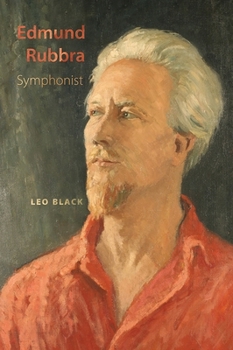Edmund Rubbra: Symphonist
Select Format
Select Condition 
Book Overview
Leo Black, Edmund Rubbra's Oxford pupil in the 1950s, later worked in BBC Radio as his music became unfashionable. This first substantial study for fifteen years is only the third in all, and coincides with his gradual re-discovery. A succinct biographical sketch throws light on legends about the BBC and Rubbra; there are full programme notes on each symphony, with shorter accounts of important non-symphonic works, in particular a 'triptych' of concertos from the 1950s and major liturgical pieces composed around the time of the Second Vatican Council, after Rubbra's conversion to Catholicism. The question of his 'mysticism' is considered. Musical examples are readable by anyone who ever sang or played from sheet music.
Rubbra b. Northampton 1901, d. Gerrard's Cross 1986] revivified traditions reaching back far into England's musical and religious history, without pastiche or self-conscious nationalism. His eleven symphonies covered a period of musical and political upheaval 1934 - 1980], the first four reflecting the uneasy later-1930s, with a second global conflict no longer avoidable. The immediately-post-war ones document new emotional depths and his conversion, while the final symphonies show a man still in search of peace and reconciliation, overlooked by the world but certain he was on the right path.
Rubbra b. Northampton 1901, d. Gerrard's Cross 1986] revivified traditions reaching back far into England's musical and religious history, without pastiche or self-conscious nationalism. His eleven symphonies covered a period of musical and political upheaval 1934 - 1980], the first four reflecting the uneasy later-1930s, with a second global conflict no longer avoidable. The immediately-post-war ones document new emotional depths and his conversion, while the final symphonies show a man still in search of peace and reconciliation, overlooked by the world but certain he was on the right path.
Format:Paperback
Language:English
ISBN:1843839334
ISBN13:9781843839330
Release Date:July 2014
Publisher:Boydell Press
Length:256 Pages
Weight:0.81 lbs.
Dimensions:0.5" x 6.1" x 9.2"
Customer Reviews
0 rating





